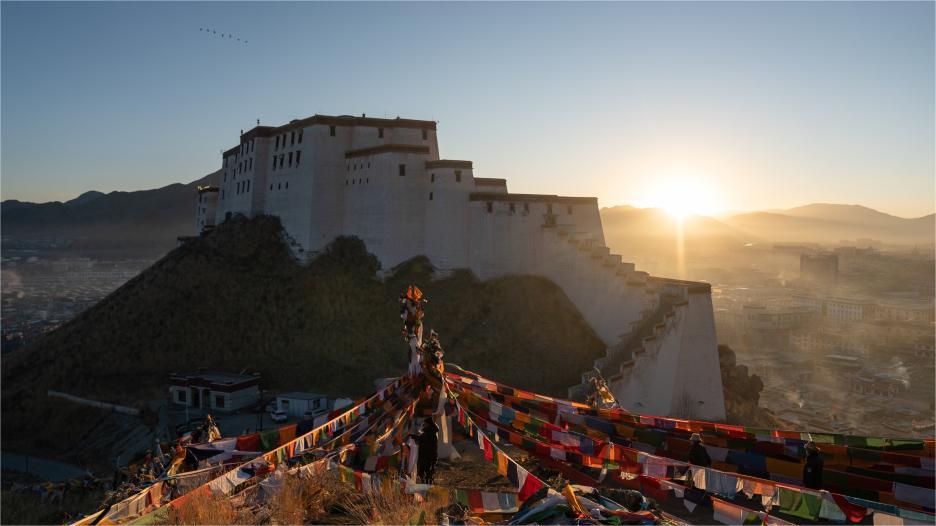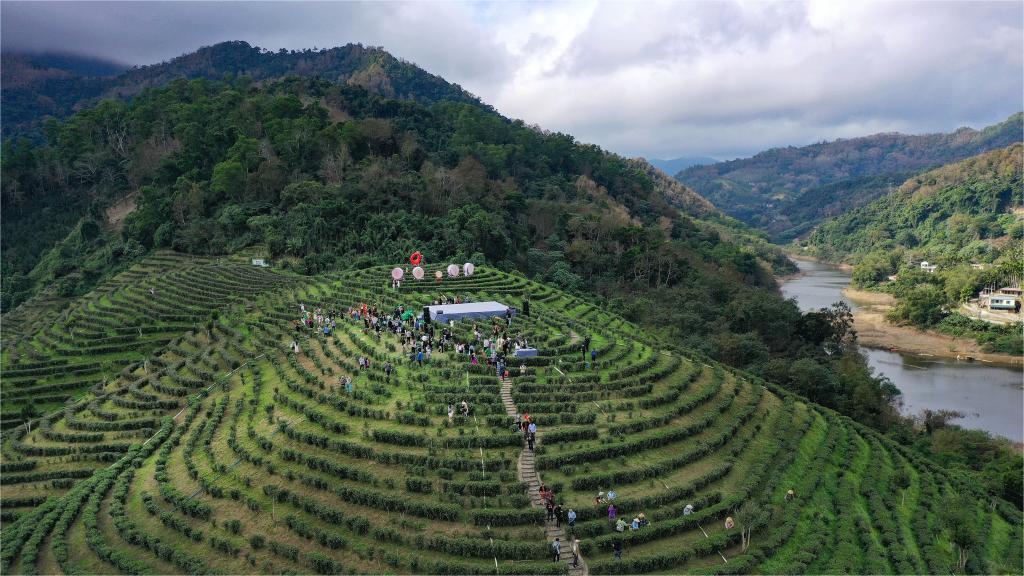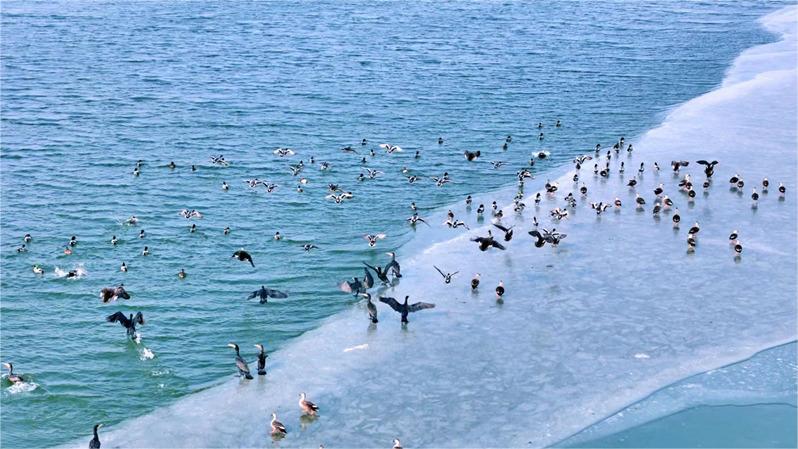Growing north-south travels underline winter tourism vigor
KUNMING, Jan. 15 (Xinhua) -- A group of young travelers, affectionately named the "little sugar oranges" by netizens, from south China's Guangxi Zhuang Autonomous Region, where sugar oranges are a local specialty, recently concluded a winter camp in the chilly northeast of China.
Meanwhile, a cohort of 12 preschoolers from China's northernmost city, Mohe, embarked on their winter adventure to Xishuangbanna Dai Autonomous Prefecture in Yunnan Province, southwest China.
Such long-distance trips between the vast country's north and south are proved a smash hit in the tourism sector this winter, following the success of Harbin, capital city of northeast China's Heilongjiang Province. Harbin rises as a top choice for winter vacation, owing to the city's thoughtful services tailored for tourists from southern China and novel ice-and-snow experiences for people whose hometown rarely snows.
Mohe in northeast China is renowned as China's coldest city, whereas Xishuangbanna is among the warmest in China this season. Since the temperature differences between the two places can reach over 40 degrees Celsius, many Chinese netizens described the kids' trips as "an encounter between ice and fire."
On Jan. 10, the 12 children spent their day in Xishuangbanna's Wild Elephant Valley: interacting with Asian elephants, a star wild species. Dressed in local ethnic costumes, they visited a Dai village and enjoyed a traditional water-splashing activity the next day. With the help of local teachers, the kids also enjoyed traditional Dai food and tried their hands at some of the prefecture's intangible cultural heritage practices.
The children hailed happily in front of cameras: "We are having great fun in Xishuangbanna!"
The preschoolers' tour not only shows the deep integration and frequent cultural exchanges between China's southern and northern regions, but also demonstrates the popularity of cross-provincial trips.
Last weekend, the topic, "a map for touring trips between China's south and north," became one of the top three buzzwords on the Chinese popular microblogging site Sina Weibo, garnering more than 1 million viewers.
According to the "map" released by a service website under China Meteorological Administration, Mohe is among the top seven ice-and-snow tourism cities in northern China, along with Harbin, which received more than 3 million tourists and achieved a record-high tourism income of 5.9 billion yuan (about 830 million U.S. dollars) during the three-day New Year holiday. Meanwhile, Xishuangbanna is among the five most sought-after destinations for those who looking for a winter escape.
The weather service website also prepared several tips for winter tourism enthusiasts: People who travel north for ice and snow need to prepare warm scarves, hats, gloves, thermos cups and instant heat patches and the like. Tips include the suggestion that travelers should not only consider the thermal performance of any clothes, but also make sure they are windproof, damp-proof, and easy to wear and take off.
For tourists heading south, the website suggests sun caps, sunscreen, umbrellas, sunglasses and quick-drying clothes, but also warns thick coats could be useful due to the changeable weather.
Yunnan has long been a popular choice for winter travelers because of its pleasant year-round climate. Since it has been frequently labeled as "an ideal hometown" by netizens on social platforms, a large number of tourists are expected to visit Yunnan during the upcoming Spring Festival holiday.
According to Li Qiang, head of the culture and tourism bureau of Xishuangbanna, a series of activities, such as the tropical rainforest festival and the elephant festival, will offer better experiences for the visitors.
In Yunnan's Pu'er City, the Cultural Landscape of Old Tea Forests of Jingmai Mountain was inscribed on the UNESCO World Heritage List in 2023. This newly popular tourist destination is poised for its first long Spring Festival holiday since its World Heritage listing.
Shai Kan, a local villager in Jingmai Mountain, owns a tearoom and an inn. He and his wife are busy renovating their tearoom's reception area to cope with the likely increase of tourists.
For the upcoming holiday, many southerners in China have added northeastern cities to their resort options, while northern residents would like to travel to the south to enjoy some warm respite.
"I am glad that more and more people are coming to Yunnan, especially to Jingmai Mountain, to experience the traditional culture of our ethnic minorities," said Shai Kan with confidence and optimism. "The warm weather here is sure to win everyone's heart, regardless of their gender and age."
Photos
Related Stories
- Supply-side reforms unleash momentum in China's ice-and-snow economy
- Amazing starry night in Tengchong, SW China's Yunnan
- Winter tourism booms across nation
- Cultivating China's avocado capital in rural Yunnan
- China implements measures to facilitate foreigners visiting China, relaxing visa application requirements
Copyright © 2024 People's Daily Online. All Rights Reserved.









